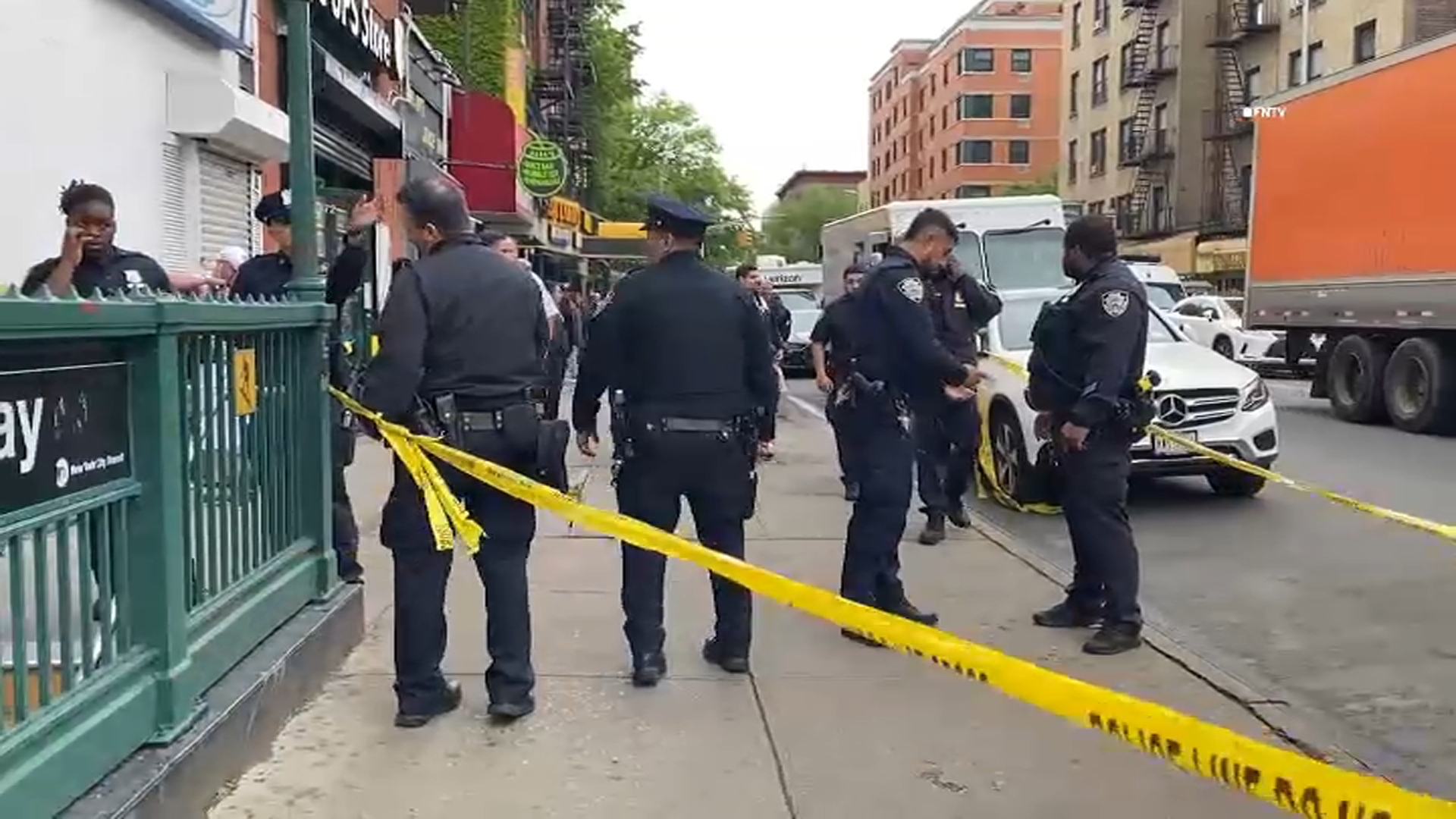In Albany as in Washington, the chattering classes take it for granted that New York Gov. Andrew Cuomo is planning to make a bid for the Democratic presidential nomination in 2016.
Yet for the second year in a row, Cuomo declined to attend the National Governors Association winter meeting this weekend in Washington, typically a must-attend event for aspiring governors.
In fact, since winning office in 2010, he’s been absent from virtually every high-profile political event populated by those with ambitions for the national stage. In the 420-some days that he has been in the Statehouse, Cuomo hasn’t done a single interview with any of the national television networks, despite more than a dozen requests from Sunday morning shows. With the exception of an interview in GQ magazine, he hasn’t sat down with the national print media either.
It’s a curious way to pave the path for a presidential bid, and one that puts him in stark contrast to other heavily discussed 2016 contenders, most notably Maryland Gov. Martin O’Malley, a ubiquitous media presence who has willingly appeared on the Sunday morning talk show circuit. On Sunday, for example, O’Malley — who is in town for the NGA meeting — went on CBS’s “Face The Nation” to pitch the pro-Obama counterpoint against Romney surrogate New Jersey Gov. Chris Christie.
Political operatives and media insiders in New York say Cuomo’s low profile is part of a tightly controlled media operation geared toward ensuring a strong showing in 2016. By avoiding the national spotlight now, they say, Cuomo can craft his own narrative as an able governor — outgrowing his reputation as a brash political tactician — and, perhaps most important, avoid making the kinds of gaffes that have plagued him in the past.
But every move is political, the insiders say, and Cuomo’s office knows that the media will pay attention with or without the governor’s assistance.
“Here you have a Democratic governor whose general position in life is, ‘If I do a good job, they will find me,’” Democratic strategist Hank Sheinkopf explained. “He’s the guy who’s running the game and the Washington media is finding him.”
Local
Cuomo’s office resists any talk of a presidential bid and even insists that the governor and former Housing and Urban Development secretary stays out of the national spotlight precisely to tamp down such speculation.
Indeed, since being sworn in on Jan. 1, 2011, Cuomo has only left the state of New York twice: once to attend a fundraiser in California and once to attend a conference in Puerto Rico. On both occasions, his office said he returned home the same day he flew out.
“The reason we don’t do more national events or media is we do not want to fuel media speculation that he is interested in running for president when he is solely focused on being the best governor he can be,” said Josh Vlasto, a spokesperson for the governor.
But those who have spent years dealing with Cuomo don’t buy that line and insist that such resistance mirrors the two-sided media strategy the governor has applied to local media in New York, where Cuomo will float speculation about a presidential bid off the record only to have his office deny it later.
“He or his office will leak stories to their favorite reporters that there’s speculation he’s going to run for president and then they’ll assiduously deny it on the record,” said a former Cuomo staffer.
Cuomo’s media operation is so aggressive and controlling that numerous media sources and political operatives declined to speak on the record about it, suggesting that it would get them in trouble with the governor’s office.
“If anybody even hints at saying something negative about the governor, they will get screamed at as soon as that thing hits the Web, within five minutes,” the former staffer said. “There’s a lot of intimidation.”
That said, few think Cuomo’s strategy is a bad idea. By most accounts, he has had a remarkably successful first year in office, passing the state’s same-sex marriage bill, closing its $10 billion budget deficit and bringing some semblance of order to one of the most disorderly and dysfunctional capitals in the country. Cuomo now has a 69 percent job approval rating, according the the latest Quinnipiac University poll, and a 64 percent job approval rating among Republicans.
His initial success in governing one of the largest states in the nation — a state that once regularly produced presidential contenders — can’t help but generate talk of a 2016 bid. And that, many say, is part of the plan.
“By not drawing attention to himself — by not going on the national talk show circuit and by not going to Washington, D.C. — he’s calling attention to himself,” said Doug Muzzio, a professor at Baruch College and host of CUNY TV’s “City Talk” program. “Cuomo would be a star on the Sunday shows or at the governors meeting but he chooses not to go. And by not pitching himself, to a certain extent that’s exactly what he’s doing.”
“It always plays well locally to make a big statement about how you don’t leave the state,” the former staffer said. “New Yorkers will not penalize their public officials for getting mentioned nationally — that’s part of the deal here. But going to Iowa wouldn’t sit well; it would seem very hasty, premature, ambitious. So this is part of a strategy to say, ‘Hey, I never leave.’”
Yet there are other reasons to avoid press attention, including Cuomo’s penchant for saying things that get him into trouble.
“Andrew has one main weakness as a political person,” the former associate said. “He’s not good when he gets questioned a lot. He can run his mouth.”
Among his stumbles: While running for the governor’s office in 2002, Cuomo accused incumbent Gov. George Pataki of ceding his leadership role on 9/11 to New York City Mayor Rudy Giuliani. “He stood behind the leader,” Cuomo said. “He held the leader’s coat.”
Those comments marked the beginning of the end of Cuomo’s first gubernatorial campaign, which he ultimately suspended one week before the primary.
In 2008, as New York attorney general and serving as a Hillary Clinton surrogate, Cuomo suggested Barack Obama was trying to “shuck and jive” the media, a racially charged statement that stirred up national controversy.
The fear that Cuomo might say something that could undermine his chances in 2016 is part of the reason that, with few exceptions, Cuomo has limited his on-the-record interviews to a single journalist, New York Post columnist and talk radio show host Fred Dicker, a friendly questioner who provides the rest of the New York press corps with the tea leaves of the Cuomo mind-meld.
“He’s not shunning the national spotlight so much as he’s showing some political shrewdness,” said Susan Del Percio, a Republican strategist. “He’s staying beneath the political fray and he’s been that way consistently with the New York press as well. He’s not exactly Mr. Media Outreach — that’s the overall media strategy and there’s a lot to be said for that.”
Cuomo’s reluctance to engage with the press dates to 2007, when he became state attorney general. The practice led television channel NY1 to become so frustrated with Cuomo’s refusal to do on-air interviews that they started a “Cuomo Clock” to display the number of days he had ignored their requests. (NY1 quietly removed the Cuomo Clock from its website earlier this month. “We decided to give the clock a rest for a while,” NY1 Political Director Bob Hardt told POLITICO.)
As the governor gears up for his next act, the media-dodging strategy offers Cuomo and his media team one advantage: it helps ensure they are the ones crafting the Cuomo 2016 narrative. That’s a luxury most other politicians don’t have — as the governor of the media capital of the world, a former Cabinet secretary and the son of storied Democratic Gov. Mario Cuomo, Cuomo can afford to stiff-arm the press because he doesn’t have to worry about building name recognition.
“If the national media covers him now — good, bad and ugly, warts and all — it’s going to be difficult for him to introduce himself the way he wants to introduce himself in 2016,” the former associate said. “Cuomo wants to be able to define himself in 2016, to say that he was able to come to a very dysfunctional environment in Albany, that he was able to tame it and so on.”
The only question left on the table is exactly when Cuomo will begin his forays beyond New York’s borders. While there are risks associated with delaying a national media strategy, there’s a school of thought that the longer the unacknowledged float of 2016 speculation, the more inevitable his candidacy will seem.
“He’s certainly got time on his side,” Muzzio argued. “And it adds to the mystery and the star power. There’s a little Greta Garbo going on there.”
For Cuomo, that follows an all-too-familiar playbook. When he ran for governor in 2010, he didn’t announce he was running until less than six months before the election, despite the fact that speculation had been building for well over a year. All the while, Cuomo insisted that it wasn’t the time to play politics.
“The strategy is do a good job at home, make headlines doing your work in the world’s media capital and they will come looking for you,” Sheinkopf said. “And it’s working because people are talking about what he’s doing.”




